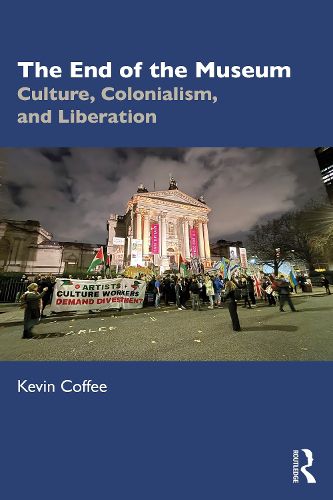Readings Newsletter
Become a Readings Member to make your shopping experience even easier.
Sign in or sign up for free!
You’re not far away from qualifying for FREE standard shipping within Australia
You’ve qualified for FREE standard shipping within Australia
The cart is loading…






This provocative book challenges frequently voiced assertions regarding museums as necessary and valued modern institutions. It raises fundamental, existential questions about contemporary museums as products of the modern colonial world order.
Drawing on practical examples of collecting and exhibiting, theoretical research, and critique from diverse countries across the globe, including Chile, India, Korea, the Netherlands, Nigeria, Palestine, Portugal, Sri Lanka and the United States, this book moves beyond the conventional Eurocentric museological framework. This book synthesizes contemporary critiques of museums, while arguing that societies need the sociocultural examinations that museums are capable of facilitating and that radical transformations of "the museum" are fraught with difficulty, but also possible and necessary. Ultimately, Coffee argues that museums can only be future orientated if they are transformed into agents of social justice and inclusion, divestors of illicit collections, and proponents of a liberatory ethic, opposing neo-colonialism in all of its forms. During that transformative process, as this book demonstrates, museum practice and museum theory must also be transformed.
The End of the Museum: Culture, Colonialism, and Liberation will appeal to students, researchers, and practitioners interested in a critical examination of museum work and theory.
$9.00 standard shipping within Australia
FREE standard shipping within Australia for orders over $100.00
Express & International shipping calculated at checkout
This provocative book challenges frequently voiced assertions regarding museums as necessary and valued modern institutions. It raises fundamental, existential questions about contemporary museums as products of the modern colonial world order.
Drawing on practical examples of collecting and exhibiting, theoretical research, and critique from diverse countries across the globe, including Chile, India, Korea, the Netherlands, Nigeria, Palestine, Portugal, Sri Lanka and the United States, this book moves beyond the conventional Eurocentric museological framework. This book synthesizes contemporary critiques of museums, while arguing that societies need the sociocultural examinations that museums are capable of facilitating and that radical transformations of "the museum" are fraught with difficulty, but also possible and necessary. Ultimately, Coffee argues that museums can only be future orientated if they are transformed into agents of social justice and inclusion, divestors of illicit collections, and proponents of a liberatory ethic, opposing neo-colonialism in all of its forms. During that transformative process, as this book demonstrates, museum practice and museum theory must also be transformed.
The End of the Museum: Culture, Colonialism, and Liberation will appeal to students, researchers, and practitioners interested in a critical examination of museum work and theory.